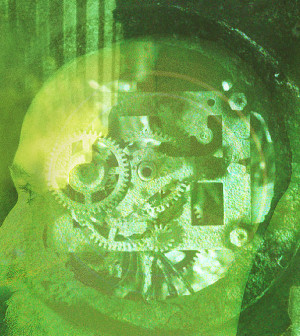- Could Your Grocery Store Meat Be Causing Recurring UTIs?
- Are You Making This Expensive Thermostat Error This Winter?
- Recognizing the Signs of Hypothyroidism
- 10 Strategies to Overcome Insomnia
- Could Artificial Sweeteners Be Aging the Brain Faster?
- Techniques for Soothing Your Nervous System
- Does the Water in Your House Smell Funny? Here’s Why
- Can a Daily Dose of Apple Cider Vinegar Actually Aid Weight Loss?
- 6 Health Beverages That Can Actually Spike Your Blood Sugar
- Treatment Options for Social Anxiety Disorder
When It Comes to a Growing Child, the Brain Comes First


Young children grow much more slowly than other mammals because their developing brains require so much energy to prepare for the challenges of later life, a new study contends.
Researchers analyzed data from PET and MRI brain scans and found that enormous amounts of energy are used by the human brain in the first few years of life, which means physical growth has to take a back seat during that time.
For example, a 5-year-old’s brain uses twice as much glucose (the energy that fuels the brain) as the brain of an adult. This “brain drain” of energy peaks at about age 4 and body growth slows to a minimum. At this age, the brain burns energy at a rate equal to two-thirds of what the entire body uses at rest, the study authors said.
The findings support a longstanding theory about why children grow so slowly, said the authors of the study, published this week in the journal Proceedings of the National Academy of Sciences.
“Our findings suggest that our bodies can’t afford to grow faster during the toddler and childhood years because a huge quantity of resources is required to fuel the developing human brain,” first author Christopher Kuzawa, a professor of anthropology at Northwestern University, said in a university news release.
“As humans we have so much to learn, and that learning requires a complex and energy-hungry brain,” he added.
The findings also explain some common observations made about young children, the researchers said.
“After a certain age it becomes difficult to guess a toddler or young child’s age by their size,” Kuzawa said. “Instead you have to listen to their speech and watch their behavior. Our study suggests that this is no accident. Body growth grinds nearly to a halt at the ages when brain development is happening at a lightning pace, because the brain is sapping up the available resources.”
It was previously thought that the brain’s demand for energy was highest at birth, when brain size relative to the body is greatest.
The study’s finding that the brain’s energy needs peak at age 4 “has to do with the fact that synapses, connections in the brain, max out at this age, when we learn so many of the things we need to know to be successful humans,” Kuzawa said.
The study was done in collaboration with researchers at Northwestern University, Wayne State University in Detroit, Children’s Hospital of Michigan, Icahn School of Medicine at Mount Sinai in New York City, the University of Illinois, George Washington University and Harvard Medical School.
More information
The U.S. National Institute of Mental Health has more about brain development during childhood and adolescence.
Source: HealthDay
Copyright © 2026 HealthDay. All rights reserved.










